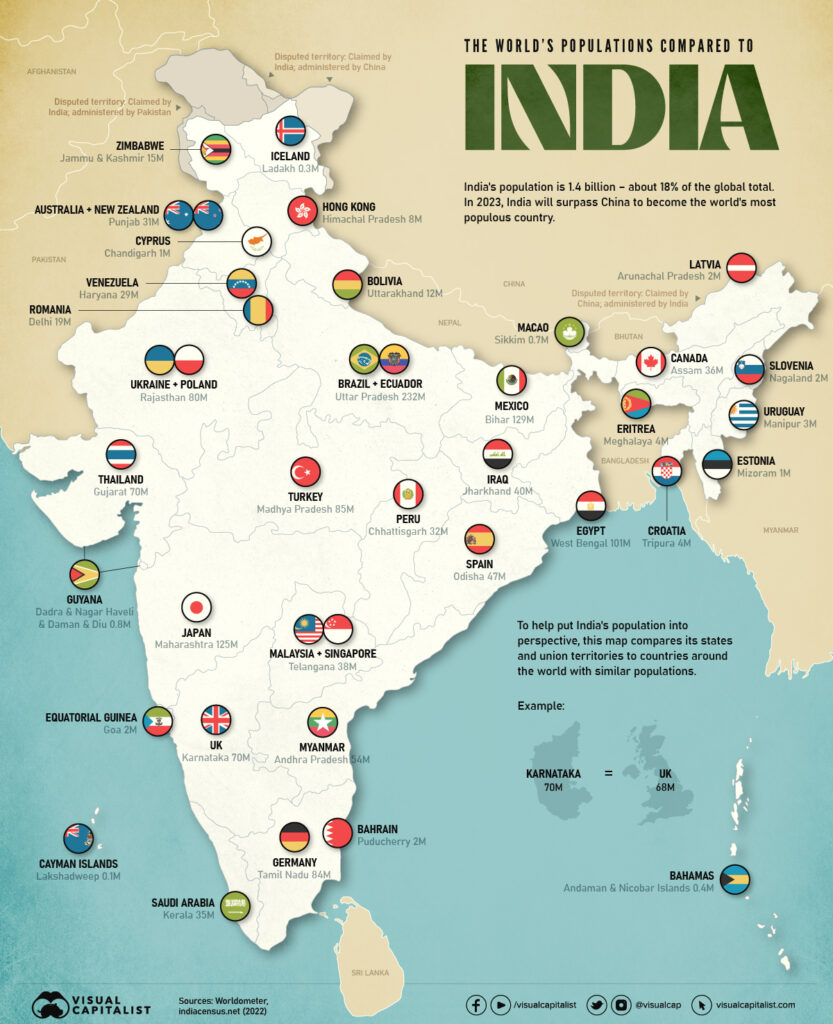As we all know, during the days of G20 Summit, it was noticed that several spots during the conference including the G20 invite had the name India to Bharat (just Bharat). Lets discuss what are the reasons of this name change from India to Bharat.
Background of the name India to Bharat
In a move that has sparked curiosity and ignited debates across the nation, India is considering a significant shift in its nomenclature, from India to Bharat. The proposal to officially adopt the name Bharat has raised questions about identity, cultural pride, and the nation’s historical roots. In this article, we delve into the reasons behind India’s contemplation of this name change and explore the potential implications of such a shift.
Historical Significance of India and Bharat
The term “Bharat” has deep historical roots in Indian culture and mythology. In Hindu scriptures, Bharat is often referred to as a legendary king and the son of King Dushyanta and Queen Shakuntala. The name Bharat carries profound cultural significance, symbolizing the ancient heritage and rich traditions of the subcontinent. By considering the transition to Bharat, India aims to reconnect with its historical identity and pay homage to its cultural roots.
Cultural Pride and National Identity
Proponents of the name change argue that adopting Bharat as the official name reflects a sense of cultural pride and reinforces the country’s unique identity. India has a diverse cultural tapestry woven with myriad languages, traditions, and customs. By embracing the name Bharat, the nation seeks to celebrate its unity in diversity and emphasize its rich cultural heritage that spans thousands of years.
The move is seen as an assertion of India’s distinctiveness in a globalized world, where nations often grapple with preserving their cultural identities amidst the forces of globalization. Critics, however, question whether a name change alone can adequately capture the complexity and diversity of India’s cultural mosaic.
Constitutional and Legal Aspects
India, in its Constitution, is referred to as both “India” and “Bharat.” The Constitution of India, adopted in 1950, mentions the country as “India” in Article 1 and as “Bharat” in Article 1(1). The proposal to use “Bharat” exclusively is not without its legal complexities. Constitutional amendments may be required to effectuate the change, and such amendments could face scrutiny and debate in the country’s legislative bodies.
The debate over the name change also raises questions about the practical implications of such a shift. How will it impact official documents, international relations, and the everyday lives of citizens who have long identified themselves as Indians? These are essential considerations that need thorough examination before any decision is made.
Symbolic Reconnection with Heritage and India to Bharat
For some, the shift to Bharat represents a symbolic reconnection with the nation’s pre-colonial past. The name “India” itself is a colonial legacy, derived from the River Indus and popularized by Western invaders and traders. By reverting to Bharat, the nation seeks to shed the vestiges of colonial influence and embrace a name that resonates more authentically with its historical and cultural narrative.
However, it’s important to note that the idea of Bharat as a symbol of pre-colonial authenticity is not universally accepted. Critics argue that a name change, while symbolically significant, may not address the complex challenges facing the nation in the 21st century, such as economic development, social inequality, and environmental sustainability.
Global Perception and Diplomacy – India to Bharat
The potential name change also raises questions about how the international community will perceive and adapt to this transformation. India, as a global player in politics, economics, and technology, has built a brand around the name “India.” A shift from India to Bharat may require careful diplomatic consideration to ensure that the nation’s global image remains intact.
Moreover, the renaming could have implications for international treaties, agreements, and partnerships where the name “India” is explicitly mentioned. Navigating these diplomatic waters will be a crucial aspect of any decision to adopt the name Bharat on the global stage.
 v
v
Conclusion of name change from India to Bharat
The contemplation of a name change from India to Bharat is a complex and multifaceted issue that intertwines history, culture, law, and international relations. While proponents argue that such a shift would strengthen cultural pride and reconnect the nation with its roots, skeptics question the practicality and necessity of such a change. As India grapples with this decision, it is essential to weigh the symbolic significance against the potential challenges and complexities that may arise in the process. Whatever the outcome, the debate surrounding this proposed name change reflects the ongoing dialogue about identity, heritage, and the evolving nature of nations in a rapidly changing world.
Mahua Moitra luxury lifestyle with 2 CRORES Mercedes G wagon and Louiss Vuitton Bags